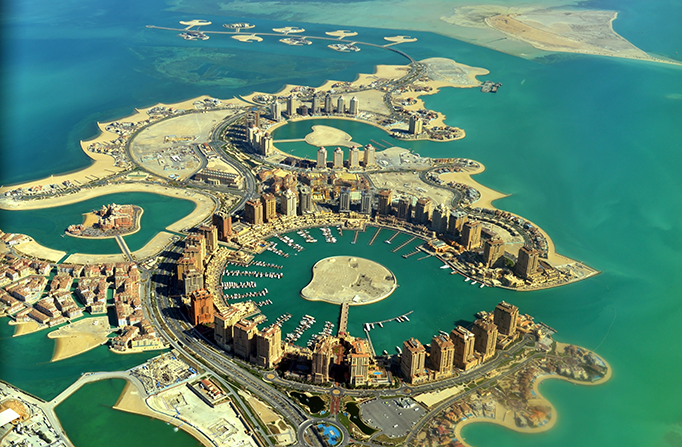
As world shopping destinations go, Qatar does not rank especially high. This peninsular Persian Gulf country does enjoy the highest GDP per capita level worldwide, but its 20-odd established malls tend to be comparatively modest in size and scope. And the population, which boasts the world’s third-highest percentage of millionaires, hops a 45-minute flight to Dubai, United Arab Emirates, whenever the urge to splurge strikes.
However, this could soon change. It is anticipated that Qatar will see nearly 1.3 million square metres of new mall space before 2019 — an infusion that will double the current total. Much of this new space is to be concentrated among dynamic mega projects that could drastically alter the retail landscape in Doha, speeding the capital city’s transformation into a regional tourism destination, so it is hoped.
“I don’t think there is anything like it going on in the world where that kind of retail is being built in one town,” said Phil McArthur, CRX, CDP, CSM, founder and managing director at Dubai-based consulting firm McArthur & Co.
The first of these projects, the roughly €1.4 billion (about $1.5 billion), 160,000-square-metre Mall of Qatar, has just opened in the growing suburb of Al Rayyan. At that size, it will arguably be the country’s largest mall, but it will not retain that status for long: Doha Festival City, a joint venture of the Al Futtaim Group and Qatar’s Bawabat Al Shamal Real Estate, will deliver 260,000 square metres of gross leasable area when it becomes fully operational this year. (The first phase of this project, an Ikea store, opened in 2013.)
Retailers sense opportunity. Consulting firm AT Kearney ranked Qatar fourth in its 2015 index of the world’s most desirable retail markets (ahead of Dubai) and highest in the Mideast. According to CBRE, 29 global retailers entered Doha last year, the 10th-highest total of any city worldwide.
Qatar has not remained immune to the economic pressures affecting the Gulf region as oil prices decline, though. Retail sales fell by 10 to 15 percent over the 12-month period that ended in the third quarter , according to brokerage firm DTZ, which estimates that tens of thousands of white-collar workers have left Qatar since 2015 because of employment issues. But though residential and prime office rents are declining after years of prolonged growth, retail rents remain firm. Standard units in malls command between QR260 (about $70) and QR300 per square metre monthly, while larger stores are securing rents of between QR170 and QR220 per square metre, essentially unchanged from a year ago.